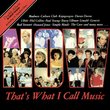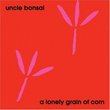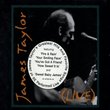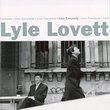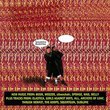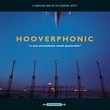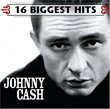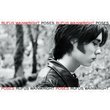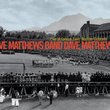| All Artists: Bach, La Chapelle Royale, Herreweghe Title: Magnificat / Cantata Bwv 80 Members Wishing: 0 Total Copies: 0 Label: Harmonia Mundi Fr. Release Date: 10/12/1999 Genre: Classical Styles: Opera & Classical Vocal, Historical Periods, Baroque (c.1600-1750) Number of Discs: 1 SwapaCD Credits: 1 UPC: 794881482429 |
Search - Bach, La Chapelle Royale, Herreweghe :: Magnificat / Cantata Bwv 80
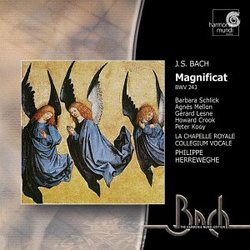 | Bach, La Chapelle Royale, Herreweghe Magnificat / Cantata Bwv 80 Genre: Classical
Bach's Magnificat is almost a microcosm of everything (well, almost) that's wonderful about Bach's sacred music--all in under half an hour. This is exactly what has made it so very popular among conductors and record labe... more » |
Larger Image |
CD DetailsSynopsis
Amazon.com Bach's Magnificat is almost a microcosm of everything (well, almost) that's wonderful about Bach's sacred music--all in under half an hour. This is exactly what has made it so very popular among conductors and record labels. So Philippe Herreweghe's greatness as a Bach conductor notwithstanding, this disc has a lot of competition. The great strength of Herreweghe's Magnificat is his soloists: alto Gérard Lesne, tenor Howard Crook, and bass Peter Kooy are solid, confident, and stylish; soprano Barbara Schlick sounds much warmer and more appealing than usual; and she, Agnès Mellon, and Lesne make beautiful music together in the trio "Suscepit Israel." The problem with this Magnificat is that the orchestra and especially the chorus just don't cut loose and get joyful when the music calls for it--the jubilant opening chorus in particular sounds positively genteel. (Try John Eliot Gardiner or Reilly Lewis to hear the difference.) Most Bach fans will probably want more than one Magnificat, however, and there's a good reason to pick up this one: the filler, Cantata BWV 80, "Ein' feste Burg ist unser Gott." The piece is basically a multimovement fantasia on Luther's famous hymn tune ("A mighty fortress is our God" to English-speakers) and Herreweghe, using the trumpet and drum parts added by Bach's son Wilhelm Friedemann, gives it a gutsy, thrilling performance, worth having by itself. --Matthew Westphal Similar CDs
Similarly Requested CDs
|
CD ReviewsA rare treat hcf | 12/13/1999 (5 out of 5 stars) "Bach's Magnificat, written to a Latin canticle Magnificat anima mea Dominum, occupied the composer's mind for about 5 years. The first version was written following Bach's appointment as cantor at St Thomas' in Leipzig. The original key was e-flat, and the work's dedication to the celebration of Christmas was very evident (it was first performed at the Christmas vigil in 1723). After a number of transformations, the final version, which is presented on this disc, adopted the key of d-major and dropped the obvious Christmas interpolations - in this form Magnificat became suitable to any church occasion. Incidentally, the original version of Magnificat is available from New London Consort under Philip Pickett, L'Oiseau Lyre 452 920-2. Pickett's magic doesn't quite work in that recording, but the AT duet "Et misericordia ejus" (Robson/Agnew) is a real winner. This duet is a show-stopper on the Herreweghe as well, stunningly sung by Lesne and Crook. "Esurientis" is also magnificent (forgive me for being a bit one-sided, I'm a fan of male altos). Magnificat is, in essence, a cycle of arias: Bach dispenses with recitative, and reintroduces the thematic material from the beginning of the work in its final chorus. Herreweghe's sensitive direction highlights the structural elegance and humanity of this piece. The CD also contains BWV 80, a return to German Lutheran music. This piece is noteworthy for its incorporation of four verses from Psalm 46 paraphrased and set to melody by Luther himself. gkolomietz@yahoo.com" Herreweghe can always be counted on... Guy Cutting | 06/14/2000 (5 out of 5 stars) "Bach wrote very little music which was based on Latin texts (the Magnificat[s] and B Minor Mass stand out). While the Magnificat cannot match the B Minor Mass in terms of sheer size, it is on the same level as a magnificent work of humanity. The music is, as per usual for Bach, of the absolute highest order. The Magnificat displays a wide range of emotion (from the joyfulness of the opening chorus to the beautiful but heartrending penitence of Et Misericordia) and compositional techniques. The music is at turns exciting, delicate, and crushing in its force. The Magnificat is not as widely recorded or performed as some of Bach's music, and that's a real shame.Herreweghe never fails to provide a good recording of Bach. His experience as a conductor is evident here. His choir is superb - they sing with a marvelous tone and perfect balance. Their skill is evident - the music sounds just as it should; they have no problems with this highly demanding (even virtuosic) music. The instrumental playing is excellent as well. The period instruments are played with great control - they blend very well. No instrument dominates. The balance between the instruments and the choir is good. I don't side with the position of the "authentics" but the sound produced on this recording is fine. Herreweghe's interpretation is good. His reading of the music, as usual for him, is intentionally middle of the road (which makes this an excellent reference [i.e., first] recording for your collection). Tempos are brisk across the board, but never hurried. The choir handles with skill anything Herreweghe demands of them. The soloists are also excellent: Et Misericordia is stunning. There really is nothing to complain about here.The quality of the recording itself is also good. The smooth digital sound captures the obvious attention payed to detail in the placement of choir and orchestra. The quality of sound is always clean, bringing out each vocal and instrumental line.Additionally, one of the cantatas is included (BWV 80, based partly on material, both poetic and musical, written by Martin Luther). This is a beautiful piece, sung with the same skill as the rest of the music on the disc (and as an added bonus this is not one of the most oft-recorded cantatas, so it's an opportunity to hear one you might not have heard before). As I said, there's really nothing to complain about. This recording is recommended..." A Music lover Guy Cutting | 08/06/2000 (5 out of 5 stars) "The previous reviewers are something of experts. I'm not and this is, in my opinion, one of the good places to start with Bach. I think this series is just wonderful and I am very happy with al that I could get of this at this time: The Saint Matthew Passion and the Magnificat."
|

 Track Listings (20) - Disc #1
Track Listings (20) - Disc #1